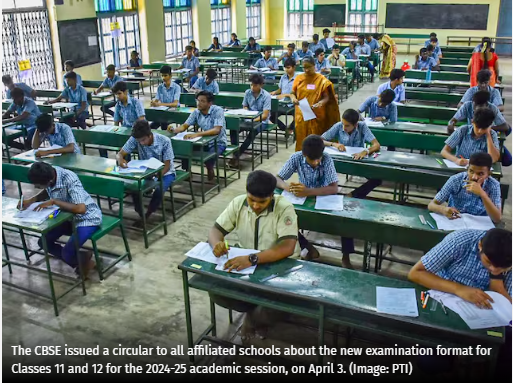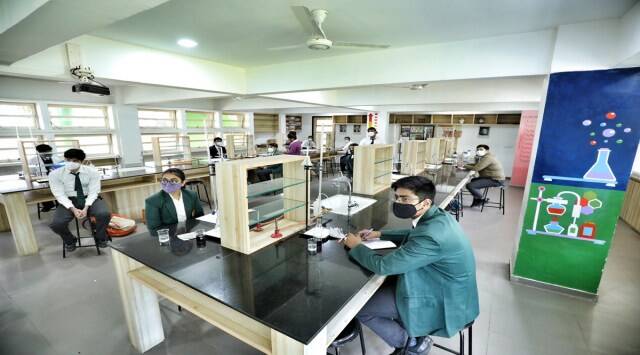
Apr 08, 2024
CBSE Changes Year-end Exam Format for Classes 11, 12; Weightage for Concept-based Questions 50% Now
For the 2024-25 academic session, the CBSE has increased the weightage for competency-based questions by 10% as compared to last year, while reducing the weightage for short and long-form answers
The Central Board of Secondary Education has modified the format of the year-end examinations for Classes 11 and 12 from 2024-25 academic session. It has increased the weightage for competency-based questions by 10 per cent as compared to last year, while reducing the weightage for short and long-form answers.
Hence, the weightage of concept application questions will be 50 per cent, as compared to 40 per cent in the 2023-24 session. For short and long answer questions, the weightage has been reduced to 30 per cent as against 40 per cent in the previous session.
A circular issued by the Central Board of Secondary Education (CBSE) to all affiliated schools on Wednesday (April 3) read: “Continuing with its practice of aligning assessment and evaluation with the new National Education Policy (NEP) 2020 in the forthcoming 2024-25 academic session, the percentage of competency-based questions that assess application of concepts in real-life situations is increased by 10 per cent.”
Concept-based questions include multiple-choice questions, case-based and source-based integrated questions. A senior official said every year, the CBSE is increasing the weightage of competency-based questions by 10 per cent, up to a maximum of 50 per cent. This has been done every year for the past three years, the official added.
The board has, however, not made any changes to the exam format for Classes 9 and 10 with respect to the previous year. The changes are being made in line with the NEP, which envisages competency-based learning instead of textbook-driven learning.
“The main emphasis of the board was to create an educational ecosystem that would move away from rote memorisation and towards learning that is focused on developing the creative, critical and systems thinking capacities of students to meet the challenges of the 21st century,” the board said in its letter to the heads of schools.
Recent News

NTA COMPILATION JUNE 2024
Posted 10 months ago

CBSE Changes Year-end Exam Format for Classes 11, 12; Weight...
Posted 1 year ago

Faculty of Law, Delhi University introduces five-year integr...
Posted 1 year ago

NCERT drops periodic table chapter from Class 10 science tex...
Posted 1 year ago

Now, humanities students can pursue BTech in CSE
Posted 1 year ago
